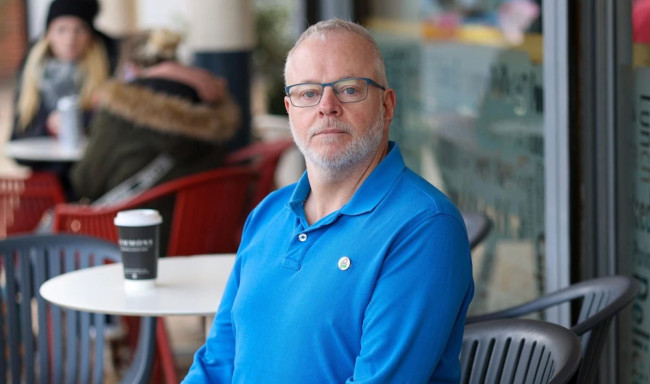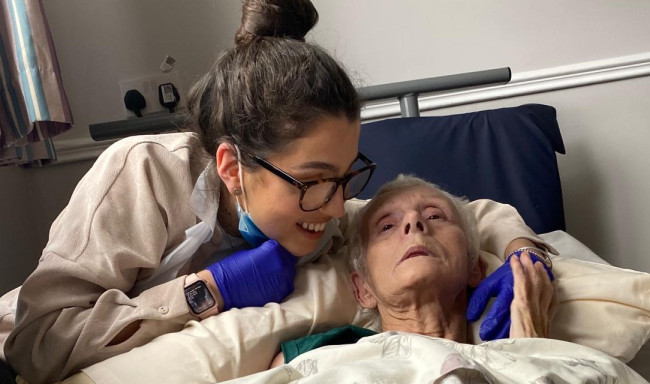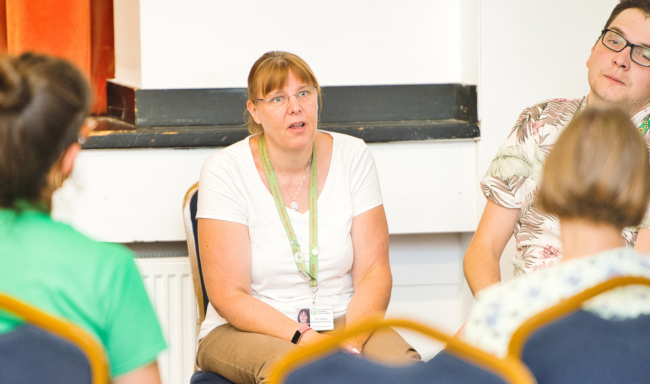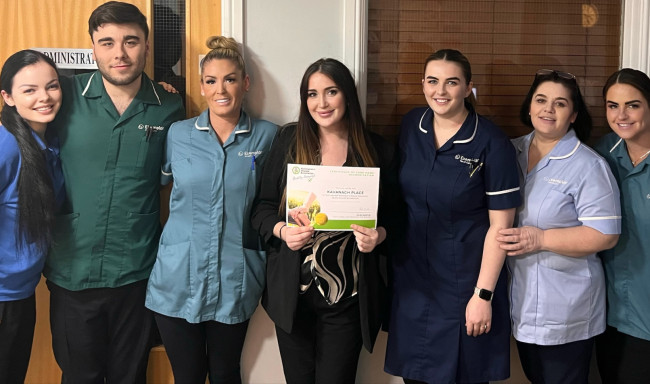Making the decision to place someone you love into a care home is not an easy one to make. The decision has followed months, if not years, of stress and anxiety as we watch the individual struggle on independently whilst their abilities, quality of life and self-worth diminish. This is the same for anyone, facing any life-limiting condition, at any age.
About Huntington's disease
Huntington’s disease is an illness caused by a faulty gene in our DNA (the biological ‘instructions’ we inherit which tell our cells what to do) and it affects the body’s nervous system. It causes changes with movement, learning, thinking and emotions. This is an inherited condition, which means that the person with Huntington’s disease and their family are very likely to have known someone else with the condition and will already know how their future might look. Huntington’s disease is rare, and many families will have encountered a lack of knowledge and understanding from their first points of contacts and help, such as their GPs, district nurses, social workers, and community carers. This inevitably leads to frustration and a general lack of trust towards those who should be relied upon; ultimately, families learn to rely on themselves.
Huntington’s disease usually begins to manifest in the mid-30s and those with Huntington’s disease are likely to be much younger than the average care home resident. Because of their family history, and because of their general fear and mistrust in the health system, the individual will often have expressed a wish not to go into care.
As the disease progresses, the complex symptoms become challenging; they may become unsafe physically, as well as in their thinking. Obsessions, compulsions and frustrations emerge, which lead to families developing many complicated routines and strategies so that their home life and loved one remain calm and without incident. An integral part of the condition is that people with Huntington’s disease don’t like change.
Care home fears
Faced with their family’s prior experiences (and often many horror stories), a fear for the future, a lack of trust towards the health services, and the age of their loved one and their complex needs, families become compressed by the stress, fear and guilt and so making the decision to place the person they love into a care home can be inconceivable.
"When families finally do reach out, when life at home has become unsafe or intolerable, it is a great relief for them to find care homes that state that they have specialist knowledge in Huntington’s disease."
To the families this means that the home has a team of staff who have received training in the disease, that they understand the complex presentation, that they have access to a team that includes Speech and Language Therapists to advise on communication and the risks associated with deteriorating swallow, a Physiotherapist to advise on movement and safety, an Occupational Therapist to suggest appropriate equipment, a clear method of assessing risk and behaviours that escalate, links to a neurological specialist so that their conditions can be regularly reviewed and a comprehensive end of life policy and procedure.
Care home training
At the Huntington’s Disease Association, we can offer training and support to any home that offers care to someone with this condition. Our Specialist Huntington’s disease advisory service can provide training for staff and we provide a three-day certificated course for professionals, which can help to develop a deeper understanding. If you are already investing significant time, resources and commitment in providing specialist care for people with Huntington’s disease then you would be able to join our Huntington's Disease Association Quality Assured programme and receive accreditation for your home and staff team. We hope that this can give people with Huntington’s disease and their families some reassurance in facing some of the challenges they face.
If you would like to find out more about the Quality Assured Scheme and how to support people with Huntington’s visit the webpage for professionals.
If you would like to find a care home that is Quality Assured visit our directory.
Phone 0151 331 5444
Email info@hda.org.uk
This article was written by Cathy Lyons, Trustee for the Huntington's Disease Association.
The article appeared in The Carer Magazine during Huntington's disease awareness month in May 2022.








